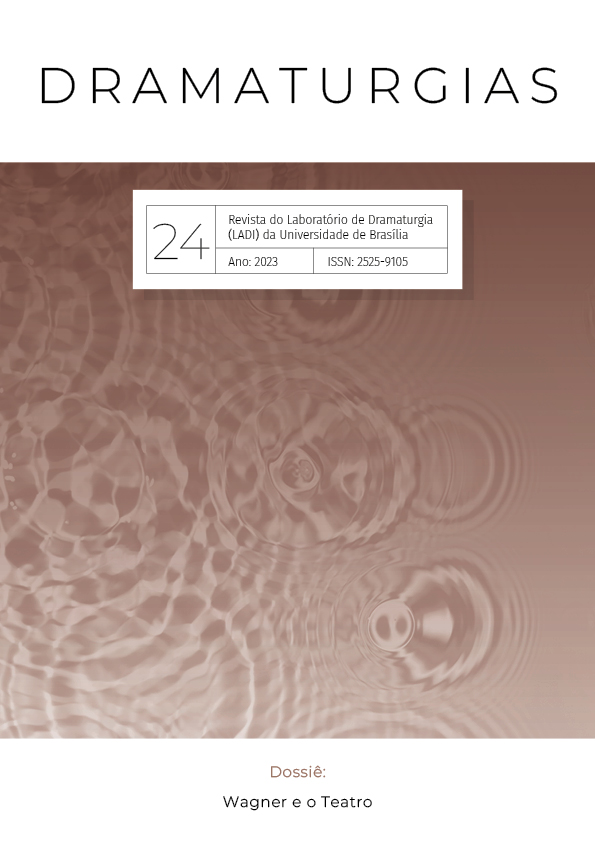Apocalypse Staged: Theme, Genre, and Wagner’s Ring in the Anthropocene
DOI:
https://doi.org/10.26512/dramaturgias24.52126Palabras clave:
Richard Wagner, Anthropocene, The RingResumen
This paper reads several recent stagings of Richard Wagner’s Ring cycle (1876), from the 1980s to the present, as hermeneutical of Anthropocenic thinking in the humanities, due in part to the work’s dramatization of an apocalypse. Humanistic inquiry on the end of the world during the Anthropocene has focused on the global climate crisis and fundamental capitalism, two benchmarks of interpretation for the apocalypse of Wagner’s Ring. These stagings of the Ring set the work in fantasy worlds via new technology and staging practices, but they also contest the Ring as a supposedly fixed cultural product. By reflecting an end of the world concomitant with the ones we imagine most often today, these stagings present a world marked by profound loss, shifting senses of place and space, and a general reinstatement of humanity’s relationship to the earth. These stagings of the Ring include the infamous centenary production from Patrice Chéreau, the dialectical stagings that followed in the 1980s by Götz Friedrich and Harry Kupfer, as well as more recent stagings of Das Rheingold from Catalan directors’ collective La Fura dels Baus (2007) and Marcelo Lombardero at the Teatro Argentino de La Plata (2021).
Descargas
Descargas
Publicado
Cómo citar
Número
Sección
Licencia
Derechos de autor 2023 Woodrow Steinken

Esta obra está bajo una licencia internacional Creative Commons Atribución-CompartirIgual 4.0.
Autores mantém os direitos autorais e concedem à revista o direito de primeira publicação, com o trabalho simultaneamente licenciado sob a Licença Creative Commons Attribution que permite o compartilhamento do trabalho com reconhecimento da autoria e publicação inicial nesta revista.



